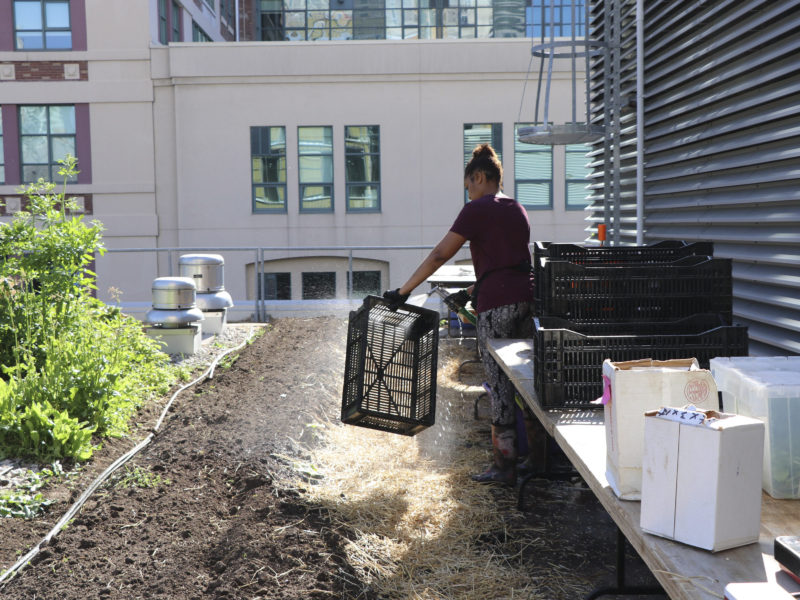Project Insights Report
Tourism and Hospitality Emergency Recovery
 Executive Summary
Executive Summary
The Tourism & Hospitality Emergency Recovery (THER) initiative, funded by the Future Skills Centre and led by the Ontario Tourism Education Corporation (OTEC), aimed to support Canada’s tourism and hospitality sector during and after the COVID-19 pandemic. This sector was one of the hardest-hit industries, with unprecedented declines in GDP, employment, and business viability. Through a collective impact approach, THER launched a series of interventions to address immediate challenges, rebuild sector capacity, and enhance resilience against future crises. Over two phases, THER progressed from emergency response in Ontario to a broader, pan-Canadian workforce development initiative, expanding to Saskatchewan, New Brunswick, and Prince Edward Island. Eight interventions were developed, with four advancing to piloting. The initiative demonstrated the potential of innovation-driven, collaborative approaches to sectoral recovery.
Key Insights
THER interventions reached over 327,000 visitors through its centralized platform and onboarded 2,700 workers to the National Worker Registry.
Stakeholders valued the iterative approach and region-specific tools like Destination Dynamics but identified challenges in sustaining networks and clarifying intervention roles.
THER demonstrated the importance of combining real-time data, collaborative design, and flexibility in addressing sector-wide challenges during a crisis.
 The Issue
The Issue
The COVID-19 pandemic devastated Canada’s tourism and hospitality sector, leading to significant job losses, revenue declines, and operational disruptions. By April 2020, hotel occupancy rates dropped below 20%, and tourism-generated GDP fell by nearly half. Vulnerable workers, including youth, women, and newcomers to Canada, were disproportionately affected. The lack of real-time labor market information (LMI), fragmented communication networks, and reduced worker attachment to the sector further exacerbated the crisis. The Tourism & Hospitality Emergency Recovery (THER) was designed to address these challenges, aiming to provide immediate support while building long-term resilience in the sector.

 What We Investigated
What We Investigated
The THER initiative aimed to evaluate how targeted interventions could address the tourism and hospitality sector’s recovery needs and foster long-term resilience. The interventions included:
- National communications campaign: Targeted messaging to the tourism and hospitality sector based on evolving industry needs, including ready-to-use communications toolkits.
- Destination Dynamics: A local economic impact and labour market forecasting model for the tourism and hospitality sector that provides user-friendly, innovative and interactive analysis.
- National Worker Registry: A database of tourism and hospitality sector workers to support more effective and efficient communication regarding industry updates, job postings and training or upskilling opportunities.
- Career Atlas: An online tool that uses AI technology to skills-match jobseekers with career paths, as well as provides labour market data, resources and training.
- Business Redesign Framework: A tool to help businesses pivot quickly and effectively, developed with the University of Guelph
- SkillsPass LMS: An online system that allows individuals to manage and share their training certificates with current and future employers, industry groups and regulators.
- Tourism SkillsNet Framework: A workforce development network for the tourism and hospitality sector.
- Propel Student Work Placement Program/Employment Pilots: A program offering paid work integrated learning and wage subsidies in travel, tourism and hospitality.
The project included a needs assessment stage to develop an evidence-based understanding of the specific challenges and opportunities faced by workers, operators and the tourism and hospitality sector as a whole. This was used to identify key trends at the national, regional and destination specific level and informed the development of the interventions.
A series of in-person facilitated workshops in each of the participating provinces, aimed at validating needs assessment and concept generation activities and improving THER interventions.
Using a developmental evaluation approach, the study combined stakeholder interviews with OTEC’s delivery team and regional partners, large-scale sentiment surveys involving over 1,500 displaced workers and 2,500 members of the general public, and pan-Canadian workshops attended by over 90 stakeholders. Additionally, administrative data from intervention activities, such as the National Worker Registry and CareerAtlas, was analyzed to assess reach and effectiveness.
 What We’re Learning
What We’re Learning
THER demonstrated the value of evidence-based, iterative intervention design.
The needs assessment stage, which included market intelligence, perceptions sentiment studies and monthly employment trend tracking, revealed critical barriers, such as negative perceptions of tourism jobs and a lack of data for regional planning. The findings highlighted trends with broad application (e .g ., barriers to entering the sector, factors that attract individuals to working in the sector) as well as population-specific findings (e .g ., newcomer job satisfaction and work experience, Indigenous peoples’ interest in working in the sector).
The pan-Canadian workshops were an important outcome of the prototyping stage, both because they allowed OTEC to test and validate key insights, and because they brought together key industry stakeholders during a time of crisis. Seven workshops were held across all four provinces, with over 90 participants attending in-person. This provided a critical platform for collaboration, networking and exchange of best practices. In addition, attendees were provided with tangible resources such as training videos and LMI that could be used in a sector dashboard. Regional workshops facilitated the exchange of best practices, with 94% of attendees reporting increased awareness of recovery supports. While there were many important positive outcomes associated with the pan-Canadian workshops, there were also challenges, including a lack of virtual attendance options, insufficient time for participants to review the destination snapshot reports prior to the event; limited follow up to sustain engagement following the workshop.
National communications campaign
The national communications campaign engaged 12 organizations across all four provinces. As part of the campaign, OTEC and partner organizations designed and developed engaging communications materials in 15 videos, print and social media formats. The materials highlighted real-life stories from diverse perspectives across the tourism and hospitality sector, ultimately directing the user to a centralized communications platform. The campaign generated 327,000 visits to the letsgetready.ca website and 65,000,000 impressions.
Destination Dynamics
The Destination Dynamics tool was adopted by Regional Tourism Organization 4 (RTO4) as part of its Economic and Labour Recovery Dashboard. Stakeholders appreciated the tool’s nimble and flexible approach, which provides ongoing practical support to inform evidence-based decisions about how members invest and support their target populations. However, limitations in data availability and network sustainability highlighted the need for enhanced collaboration and clearer communication.
National Worker Registry
The National Worker Registry had over 2,700 registrants, enhances communication between jobseekers and tourism and hospitality operators—a key gap identified during the needs assessment stage. The Registry helped boost the effectiveness of job postings and skill development opportunities, particularly as the need to attract workers back to the sector increased post-pandemic.
CareerAtlas
The CareerAtlas tool leverages AI to track individual jobseeker journeys as they enter the hospitality and tourism sector, creating stronger pathways to sustainable employment. Real-time updates are made to available jobs corresponding with individuals’ skills and experience. At the time of the evaluation, OTEC was still seeking additional funding support to implement the CareerAtlas pilot.
Four of the eight interventions were still in development when the THER initiative closed, and were therefore not advanced from prototyping to piloting, including the Business Redesign Framework, SkillsPass LMS, Tourism SkillsNet Framework and the Propel Student Work Placement Program/Employment Pilots.
 Why It Matters
Why It Matters
The tourism and hospitality sector is a significant contributor to Canada’s economy and cultural identity and has rebounded well from the effects of the COVID-19 pandemic.
Programs like THER are essential for mitigating the impact of economic shocks and ensuring vulnerable populations are supported. By leveraging a collective impact model and innovation cycle, THER provides an example of a scalable framework for sectoral recovery. Its successes and challenges provide valuable lessons for future crisis response initiatives across industries.

State of Skills:
Resilient by Design: The Skills Canadians Need Now and for the Future
To build a resilient workforce that is able to respond to and adapt to changing labour markets, whether due to unpredictable disruptions or longer-term transitions, we need a range of training and upskilling pathways that equip people with the skills they need to enter, advance, transition and return to dynamic labour markets.
FSC Insights
Understanding the Barriers to Tourism & Hospitality Workforce Recovery and Building Toward Resilience: Background Report
Tourism & Hospitality Emergency Response (THER) Project Final Report
THER Project Final Evaluation
The Impacts of COVID-19 on the Tourism Workforce in Canada
Have questions about our work? Do you need access to a report in English or French? Please contact communications@fsc-ccf.ca.
More from FSC
Indigenous Business Centre of Excellence (IBCE) Feasibility Study
Governing Sustainable Municipalities
Digital Fluency for the Workforce
How to Cite This Report
Blueprint. (2025). Project Insights Report: Tourism and Hospitality Emergency Recovery, Ontario Tourism Education Corporation. Toronto: Future Skills Centre. https://fsc-ccf.ca/projects/tourism-hospitality-recovery/
Tourism and Hospitality Emergency Recovery is funded by the Government of Canada’s Future Skills Program. The opinions and interpretations in this publication are those of the author and do not necessarily reflect those of the Government of Canada.




